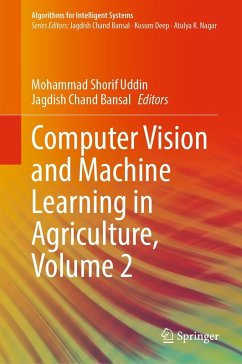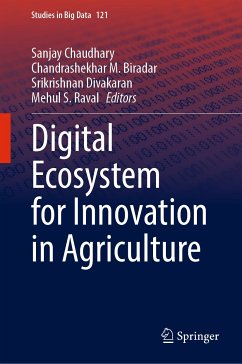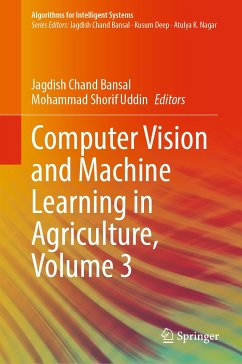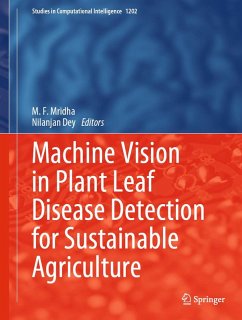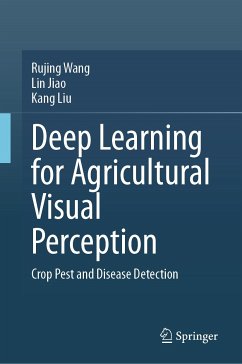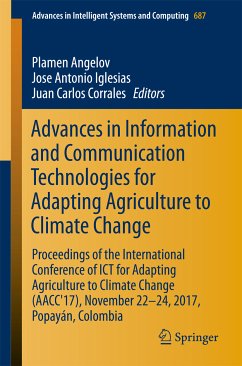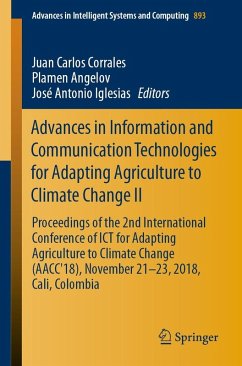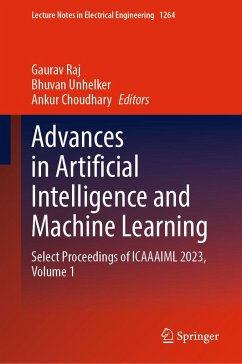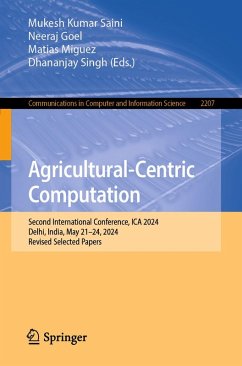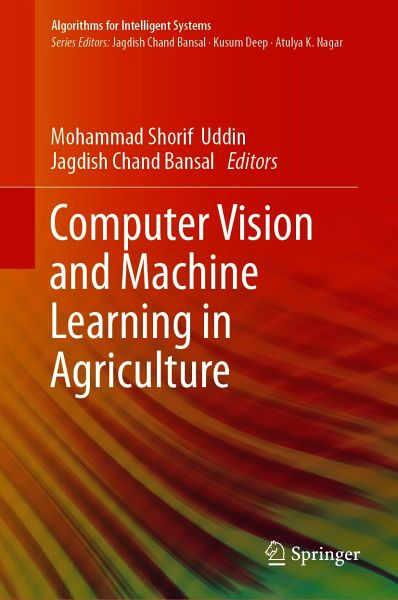
Computer Vision and Machine Learning in Agriculture (eBook, PDF)
Versandkostenfrei!
Sofort per Download lieferbar
120,95 €
inkl. MwSt.
Weitere Ausgaben:

PAYBACK Punkte
60 °P sammeln!
This book discusses computer vision, a noncontact as well as a nondestructive technique involving the development of theoretical and algorithmic tools for automatic visual understanding and recognition which finds huge applications in agricultural productions. It also entails how rendering of machine learning techniques to computer vision algorithms is boosting this sector with better productivity by developing more precise systems. Computer vision and machine learning (CV-ML) helps in plant disease assessment along with crop condition monitoring to control the degradation of yield, quality, a...
This book discusses computer vision, a noncontact as well as a nondestructive technique involving the development of theoretical and algorithmic tools for automatic visual understanding and recognition which finds huge applications in agricultural productions. It also entails how rendering of machine learning techniques to computer vision algorithms is boosting this sector with better productivity by developing more precise systems. Computer vision and machine learning (CV-ML) helps in plant disease assessment along with crop condition monitoring to control the degradation of yield, quality, and severe financial loss for farmers. Significant scientific and technological advances have been made in defect assessment, quality grading, disease recognition, pests, insects, fruits, and vegetable types recognition and evaluation of a wide range of agricultural plants, crops, leaves, and fruits. The book discusses intelligent robots developed with the touch of CV-ML which can help farmers to perform various tasks like planting, weeding, harvesting, plant health monitoring, and so on. The topics covered in the book include plant, leaf, and fruit disease detection, crop health monitoring, applications of robots in agriculture, precision farming, assessment of product quality and defects, pest, insect, fruits, and vegetable types recognition.
Dieser Download kann aus rechtlichen Gründen nur mit Rechnungsadresse in A, B, BG, CY, CZ, D, DK, EW, E, FIN, F, GR, HR, H, IRL, I, LT, L, LR, M, NL, PL, P, R, S, SLO, SK ausgeliefert werden.



